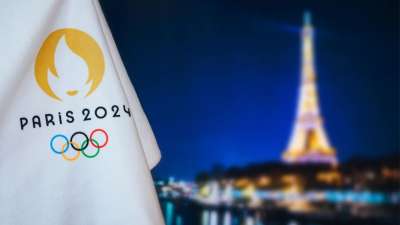Why are the Olympics in Paris different from others?: Before the start of each Olympic Games, each host city digests the criticism of the English-speaking world. Athens was never going to be prepared on time. The air above Beijing would kill everyone. Rio had the Zika infection, and rising crime would deprive champions of medals and journalists of their phones. How will Tokyo manage in its cling-film Covid bubble? There is a reason why London 2012 was skipped over. The most major pre-Games issue seemed to be a lack of security guards. Not kidding.
As consumers of the world’s English-language media (mostly from the United Kingdom and the United States, with backing from Australia and Canada), Indians are constantly presented with every Olympics as a complete disaster before they begin, particularly those conducted in non-Anglo countries. Every single time. Paris2024, of course, is a construction zone abandoned by its people, and its mayor had to plunge into the Seine to ensure the water was safe for triathletes and marathon swimmers. According to the Financial Times of London, Paris will host “an ambitious but yet risky version of the Olympics.” A security expert quoted by the FT calls the Athletes Parade down the Seine in a flotilla of boats a “criminal folly.”
Paris 2024 hopes to rework the Games’ traditional and rather tired pattern of gigantism, luxury, and white-elephant construction by hosting what is expected to be the greenest, most sustainable, and most gender equal Olympics yet. Consider Paris 2024 to be brave, rather than ‘risky’, as described by the Financial Times. Or, as the French put it, l’audace.
It is not simple; there has already been backlash to the announcement that the Athletes Village rooms will not be air conditioned, but will instead rely on a geothermal cooling system (via pipes under flooring) that reduces outside temperatures by six degrees Celsius. According to the Washington Post, the United States, Britain, Australia, Germany, Canada, and Italy will to carry their own portable air conditioners. Take note of those who have tossed toys out of cots over air conditioning before even trying geothermal cooling.
First World pressure has compelled Paris organisers to acquire 2500 portable air conditioning units for hire during the Games. How do people who are most vocal about environmental issues on global platforms find it so difficult to strike a balance between high performance and sustainability? Paris 2024 is approaching and reversing what was formerly considered standard practice in global sporting mega-events, beginning with infra and organisational contracts awarded to their organiser cronies.
In May 2018, Paris 2024 unveiled the ESS2024 Solidarity Platform, which focusses on a unique distribution approach for the €3 billion in purchases and contracts generated by the Paris2024 organisation. Working with the Bangladesh-based Yunus Centre for Social Business and the French NGO Les Canaux, Games organisers aimed to centre Games business and employment prospects on local entrepreneurs devoted to sustainability and urban revitalisation. According to Marie Sallois, IOC director for sustainability, ESS2024 entails “opening Games-related contracts to those who need them most, as well as small, medium-sized, and social businesses.”
According to a March 2024 IOC announcement, 460 local businesses have signed up to provide construction, food, furnishings, and laundry services for the Games. It includes awarding €1.6 billion cleaning and laundry contracts to nine local businesses. Eleven thousand chairs have been made from plastic trash in two venues; three young French students started a student project to recycle plastic garbage, which evolved into the Le Pavé project, which provided Olympic site seating. Paris2024 has constructed one permanent sports facility expressly for the Games: the Olympic Aquatic Centre, which will serve as a public swimming teaching, training, and event centre after the Games.
The idea that underpins the Yunus Centre has advised Paris 2024. In an online conversation organised by the Abhinav Bindra Foundation in September 2021, Nobel laureate Mohamad Yunus urged the world to view sporting events such as the Olympics through a perspective other than cash generation.
Yunus, a Bangladeshi economist, banker, philanthropist, and pioneer of microfinance/microcredit, stated that while the power of sport is immediately recognised by “commercial institutions and businesses” who use it for financial gain, the “social power” of sport is not as effectively utilised. Yunus stated that sport possessed “a 360-degree power” to reach every aspect of society. “We can benefit tremendously if we use that power for social goals without interrupting sport’s businesses benefits.” He stated that events like as Paris 2024 might be leveraged to achieve social goals while maintaining commercial rewards. He believes that through youth and sports, he can tap into the collective interest that resides alongside self-interest in every human being.
With its sustainability purpose, Paris 2024 attempted to discover a new solution to address what Yunus described as the planet’s three interconnected crises: global warming, wealth disparity, and unemployment. Yunus’ ultimate goal is called the Three Zeroes: zero net carbon emissions, zero wealth concentration, and zero unemployment. In response to the global warming situation, he stated, “We always say, okay, by 2050, we’ll do this, we’ll do that.” I’m saying we don’t have much time. Instead of talking about 2050, talk about today, tomorrow, and make it urgent, now. By 2050, we may not be here. “We are currently the most endangered species on the planet.”
The fact that portable air conditioners currently outperform geothermal cooling systems shows that Paris2024 has been dissed for even having the best intentions. But it is l’audace that might make Paris 2024, as Abhinav Bindra puts it, “a benchmark for future games.” Previously, this meant bigger, shinier, and more showy, complete with gazillion dollar fireworks displays. But not anymore. The City of Light has the potential to lead the way in global sports.
































